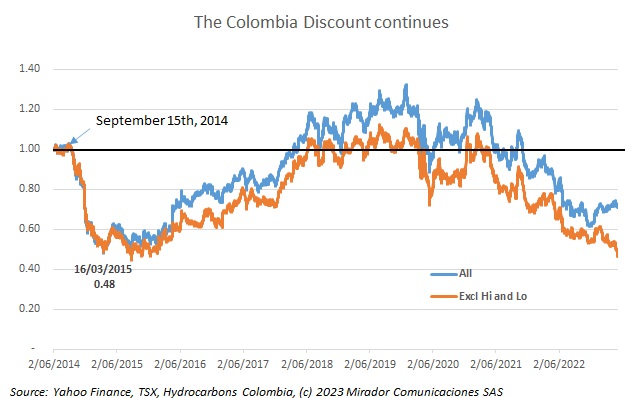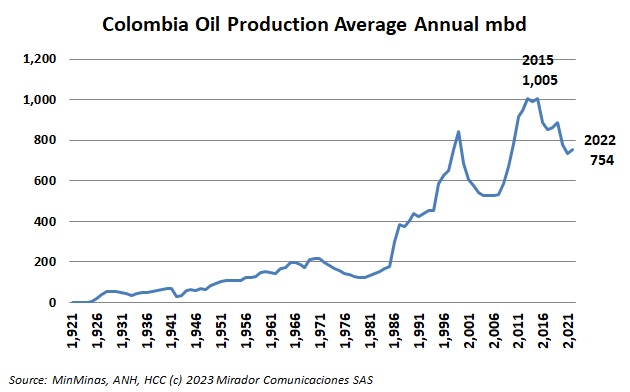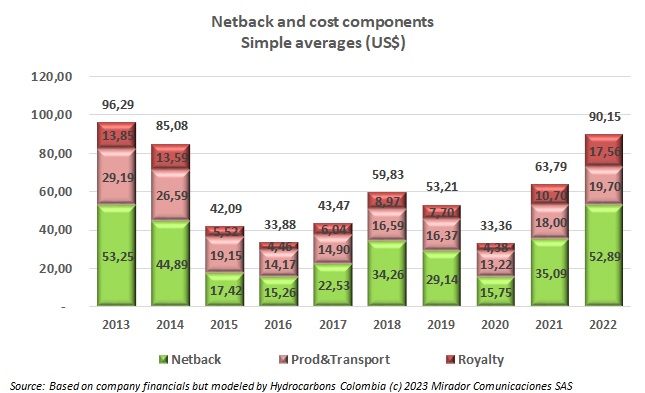
We wrote about the 2022 Colombian reserves report a few weeks ago but that was more a reaction to the press release (focused on the Minister) and not a deep dive into the results. What is the real story?
Congress and the opposition once again called for Danilo Rueda’s head as violence flared and the dissident FARC process came apart even before the first formal meeting. The ELN process passed through some rocky moments when it looked like the government would suspend those dialogues as well, but the parties still talk in Havana.

The MinEnergia press release on 2022 year-end reserves was a triumph of belief over science, a testimony of the power of politicians to warp their interpretation of reality to conform to what they have already decided to do.

Ricardo Roa did not affect Ecopetrol’s 1Q23 results and will have little influence over 2Q23 having taken command only at the end of April. But Felipe BayóN was already leaving in 1Q23 so others like Chairman Saul Kattan might have had more impact. Some key issues for the NOC’s next phase appear in the numbers already.
José Antonio Ocampo has barely left the building. His replacement Ricardo Bonilla has barely learned the passwords on his new computer and already he had to correct MinEnergia Irene Vélez on fundamental economics. This time it concerns gasoline pricing.

Ricardo Roa had his first press conference as Ecopetrol president and investors punished the stock. His ultimate boss, Colombian President Gustavo Petro, would have been happy with Roa’s strict adherence to the government’s official energy policy but commentators questioned the strategy and the share price plummeted.
National newspaper El Espectador used the phrase for an article on the upcoming third round with the ELN. It seemed like a good summary of April as things slipped through the government’s fingers.

We normally publish our statistical review of the previous year around mid-first-quarter. But some key figures were delayed so we decided to wait until the end of the quarter. Hoping you find these charts useful for presentations or strategic discussions. Subscribers can request the Excel versions to do their own graphic design.
Ricardo Roa Barragan was appointed President of Ecopetrol this week by a board named only two weeks before. Who is he? Who is on the new board? What can we expect?

At least for the last few years, oil prices have determined average Colombian netback, since margins have been stable. Prices fell in 4Q22 and so netback did too.